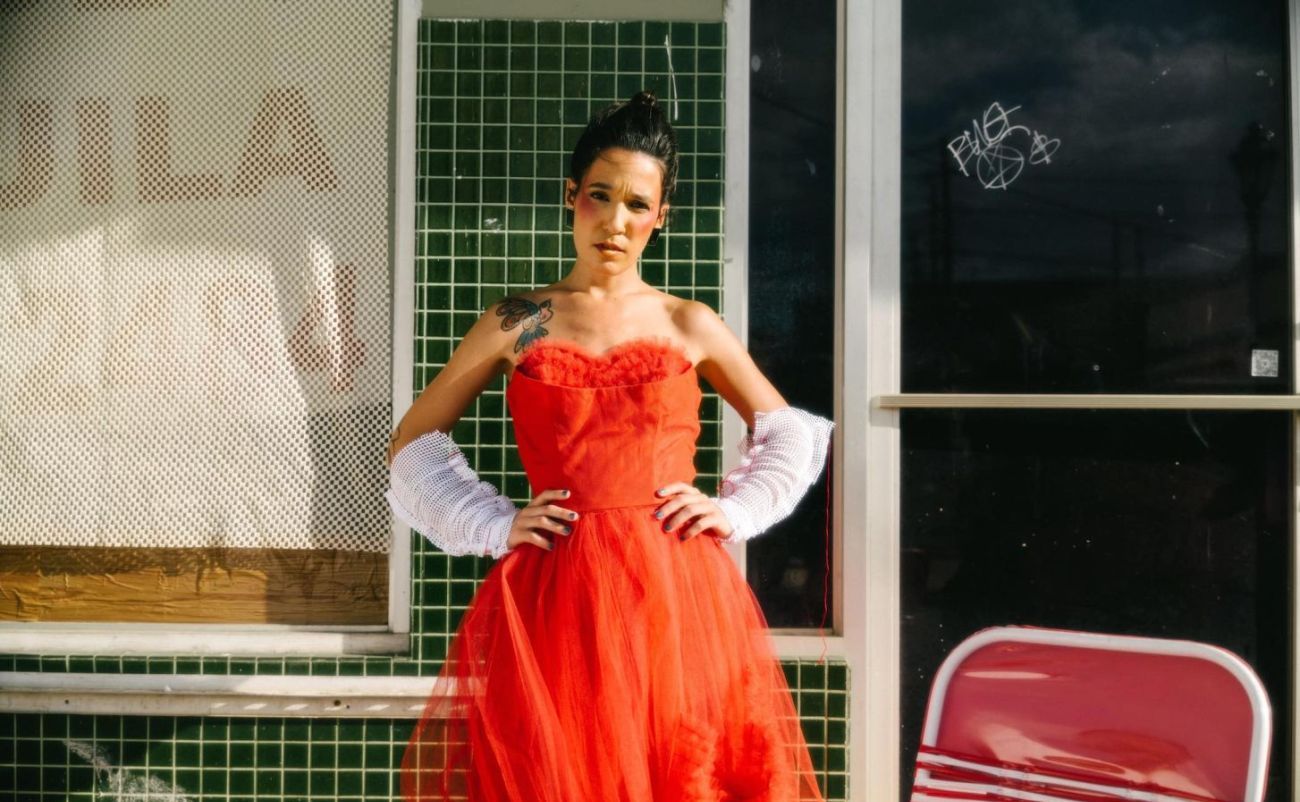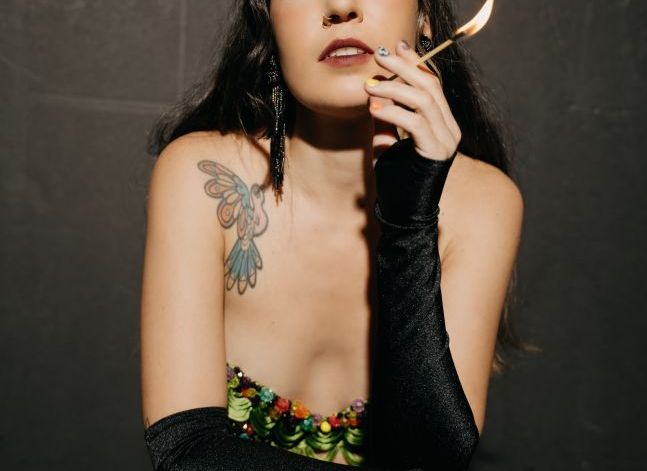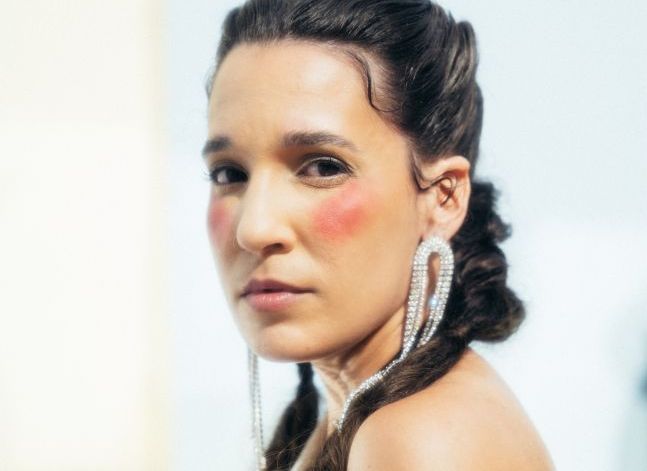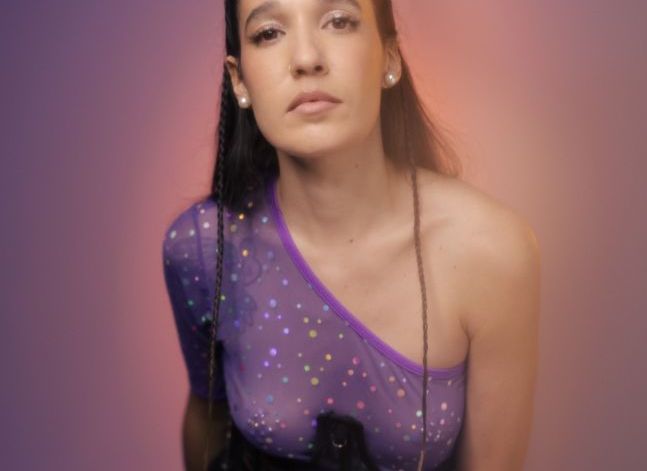
Two years ago, Ileana Cabra found herself adrift, floating in an emotional abyss. The COVID-19 pandemic had just begun to radically transform the planet, and a sense of perpetual uncertainty weighed heavy on her. Those first months of quarantine warped time and space, twisting the days into a ceaseless, indistinguishable drag. iLe turned to music, seeking some form of respite. “I felt like I was in this state of emotional madness: confused, lost,” she says. She wanted to use her meticulous creative approach to embark on a new album, but life had other plans for her.
So, she tried something else: she let go. “I had to let myself go without knowing what I was going to do or write,” she says. “I was confused and lost, but at the same time, songs kept coming out of me. I kept writing. I kept composing.”
The result is ‘Nacarile’, her third studio album and an expansive 11-track project. It draws on iLe’s affinity for classic Latin American genres and Puerto Rican folk percussion, and even dabbles in the hip-hop she performed in her youth alongside her half-brothers in the iconic group Calle 13. But Nacarile also incorporates new genres, collaging astral synths, irreverent art pop, and prismatic melodies into iLe’s most imaginative, prescient project yet. While her sophomore effort Almadura drew on the rich history of Caribbean rhythms, immersing listeners in the percussive roots of bomba, salsa, and beyond, iLe says the focus was melodic experimentation this time around.
iLe’s album was just featured as New York Times #5 “Best Album of 2022.” They wrote, “iLe sings about political and feminist self-assertion alongside songs about toxic and tempting romances.”
Lyrically, Nacarile explores how the personal and the political intersect. There are searing feminist protest songs (“ALGO BONITO”), condemnations of colonization (“donde nadie más Respira”), and reflections on the scars of patriarchal love (“traguito”). The album includes the previously released single “donde nadie más Respira,” which arrived in 2020. “I was completely overwhelmed by the poor handling of the pandemic, government indifference, and all this dehumanization,” Cabra says. “I felt like we were still in this political limbo in Puerto Rico.”
There are moments on Nacarile where iLe steps out of her comfort zone, like the explosive “ALGO BONITO.” For this track, iLe chose an unlikely collaborator: the reggaeton pioneer Ivy Queen. But as a militant avowal of women’s resistance, the song seamlessly links their political impulses. It inverts ubiquitous misogynistic sayings into statements of power: “Nunca he creído que callai’ta me veo mas linda,” raps Ivy at one point (“I’ve never thought that I looked prettier when I was quiet”). The chorus includes the common phrase “dime algo bonito” (“tell me something good”), but iLe flips the cliché into an expression of political urgency. “We want safe and legal abortion. Those are the good things we want to hear,” she says.
There are moments on Nacarile that aren’t explicitly political, too: the tenebrous “(Escapándome) de mí,” for example, includes electronic flourishes. It stitches electric guitar strums with iLe’s Auto-Tuned vocals, adding gritty textures to a track about the fears of entanglement. It’s one of iLe’s favorite songs on the album, in part because of the production and arrangement. “I didn’t want the song to stay in the monotony of my voice,” iLe explains, adding that she and producer Ismael Cancel deepened and modulated her vocals to heighten the song’s slightly psychedelic aura.
Ultimately, Nacarile dives deeply into the desolation of sociopolitical disillusionment, but refuses to submit to despondency. These songs are antidotes to desperation. They offer flashes of verve and rebellion and contend with the longevity and endurance needed to restructure our world. The title of the album is a play on iLe’s name and the Puerto Rican colloquialism “Nacarile del oriente,” an emphatic exclamation that roughly translates to “Not at all!” At first the title emerged as a joke, but soon iLe realized it reflected the defiant spirit of the album. “It’s about accepting those moments where you feel a little lost – embracing that, but not staying in that feeling,” she says. “It’s like saying, ‘Thank you, I learned a lot, but no. I’m not going to stay there.’”
Her solo debut album “iLevitable” won a Grammy for best Latin, Rock, Urban or Alternative album in 2016. In 2020 she won a Grammy for best alternative song with “En Cantos”, a collaboration with Mexican singer Natalia Lafourcade.









